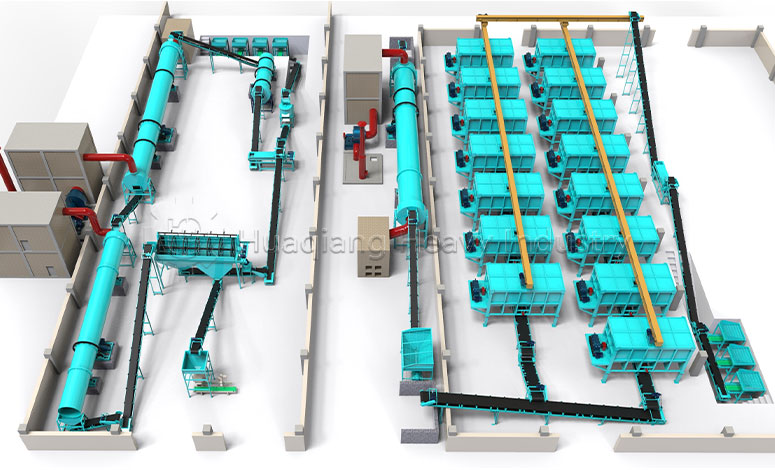Exploring how bio-organic fertilizer production transforms agricultural waste into “black gold” for sustainable resource cycling
Have you ever wondered how discarded crop straw, livestock manure, and food processing waste can be transformed into valuable “black gold” that nourishes our soil? This isn’t magic—it’s the wonder of modern bio-organic fertilizer production technology.

Environmental Protection and Energy Conservation: A Model of Green Production
The bio-organic fertilizer production line utilizes microbial fermentation technology that not only effectively processes organic waste and reduces environmental pollution but also maintains low energy consumption during production, fully meeting green production requirements. Compared to traditional NPK fertilizer production lines, bio-organic fertilizer production eliminates high-energy consumption steps in the synthesis process, achieving truly environmentally friendly production.
Consider this: billions of tons of organic waste generated globally each year could be transformed into valuable resources through organic fertilizer production lines. This approach not only addresses waste disposal challenges but also provides sustainable nutrient sources for agricultural production—a genuine “green revolution”!
Soil Improvement: Shifting from “Treatment” to “Healthcare”
Bio-organic fertilizers are rich in organic matter and beneficial microorganisms that improve soil structure, enhance soil fertility, and promote crop growth. Unlike chemical fertilizers that merely provide NPK nutrients, bio-organic fertilizers focus on the overall health of the soil ecosystem, achieving a fundamental shift from “treatment” to “healthcare.”
Raw Material Diversity
The production line can process various organic wastes with diverse raw material sources, solving waste disposal problems while achieving resource recycling.
High-Quality Products
Through strict control of fermentation processes and post-treatment technology, the bio-organic fertilizer production line produces stable, nutrient-rich fertilizers that crops can easily absorb.
High Automation
Production lines are typically equipped with advanced automation control systems that achieve full automation from raw material processing to finished product packaging, improving production efficiency and reducing labor costs.
Granulation Process
Using specialized fertilizer granulators, the production line transforms fermented materials into uniform granules that are easy to store, transport, and use, enhancing the product’s commercial value.
Bio-Organic vs. NPK Fertilizers: Complementary, Not Competitive
It’s important to note that bio-organic fertilizers aren’t meant to completely replace traditional NPK fertilizers but rather to complement them. In practical agricultural production, using both together often yields the best results—NPK fertilizers provide immediate nutrients during critical growth stages, while bio-organic fertilizers improve the soil ecosystem, offer slow-release nutrients, and enhance crop stress resistance.
Future Prospects: A Key Component of Sustainable Development
With growing global attention to sustainable agriculture, bio-organic fertilizer production technology is facing unprecedented development opportunities. Through continuous innovation and improvement, organic fertilizer production lines will become more efficient and intelligent, making greater contributions to global food security and ecological environmental protection.
Core Technologies & Equipment: Bio-organic fertilizer production • NPK fertilizer production line • Organic fertilizer production line • Fertilizer granulator • Sustainable development